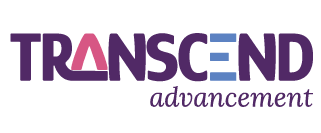DEIJB Training for Boards and Volunteers
How to Lead With Inclusivity
Diversity, equity, inclusion, justice, and belonging (DEIJB) aren’t just buzzwords—they’re essential to building strong, effective nonprofit organizations. When boards and volunteers understand and embrace DEIJB principles, they create more inclusive environments that attract diverse donors, supporters, and community members.
Yet, many nonprofits struggle to turn DEIJB intentions into meaningful action. That’s where DEIJB training comes in. It equips boards and volunteers with the knowledge and tools they need to lead with inclusivity, challenge biases, and foster equitable decision-making.
Why DEIJB Training for Boards and Volunteers Matters
Nonprofit boards and volunteers shape organizational culture and decision-making. Without DEI training, they may unintentionally reinforce exclusionary practices that limit the organization’s reach and impact. A well-structured DEIJB training program can:
Improve Board & Volunteer Representation – Encouraging diversity at the leadership level leads to more inclusive and culturally competent decision-making.
Strengthen Community Relationships – Organizations that prioritize DEI build greater trust with the communities they serve.
Enhance Fundraising & Donor Engagement – Equity-centered fundraising ensures donors from all backgrounds feel valued and included in philanthropy.
Reduce Unconscious Bias – Training helps participants recognize and address biases that may impact hiring, programming, and leadership decisions.
Key Elements of Effective DEIJB Training
1. Understanding Implicit Bias & Privilege
Many board members and volunteers don’t realize how implicit biases affect their decisions. Effective DEI training helps participants:
Identify personal and systemic biases.
Examine how privilege impacts leadership, fundraising, and governance.
Learn strategies to counteract bias and create more inclusive policies.
2. Inclusive Leadership & Decision-Making
Training should guide boards and volunteers in making decisions that reflect diverse perspectives. Topics to explore include:
Who is missing from decision-making conversations?
How can we ensure policies and initiatives are equitable for all stakeholders?
Are we prioritizing voices from the communities we serve?
When leadership understands inclusive governance, they make choices that better serve their entire nonprofit ecosystem.
3. Equity in Fundraising & Communications
Many nonprofits unknowingly use exclusionary fundraising tactics that alienate diverse donors. DEI training should teach boards and volunteers how to:
Craft asset-framed messaging that uplifts rather than victimizes communities.
Develop donor engagement strategies that resonate with different cultural and economic backgrounds.
Ensure fundraising events and campaigns are accessible to all supporters.
4. Creating an Action Plan for Long-Term DEI Integration
A single DEI training session isn’t enough. The best programs equip organizations with action plans for sustained change, including:
DEI commitments in board governance documents.
Accountability measures, such as tracking diversity in hiring, volunteer recruitment, and donor outreach.
Ongoing education opportunities to ensure DEI remains a priority.
Ready to Build a More Inclusive Nonprofit?
At TRANSCEND Advancement, we offer custom DEI training programs for nonprofit boards and volunteers. Whether you need a one-time workshop or ongoing coaching, we can help you embed inclusivity into your leadership, fundraising, and organizational culture. Let’s work together to create lasting change.
